How to add notes to your Microsoft PowerPoint slides
You don’t have to wing it when presenting a slideshow. We’ll show you how to add notes to PowerPoint so that you have your talking points at your fingertips.
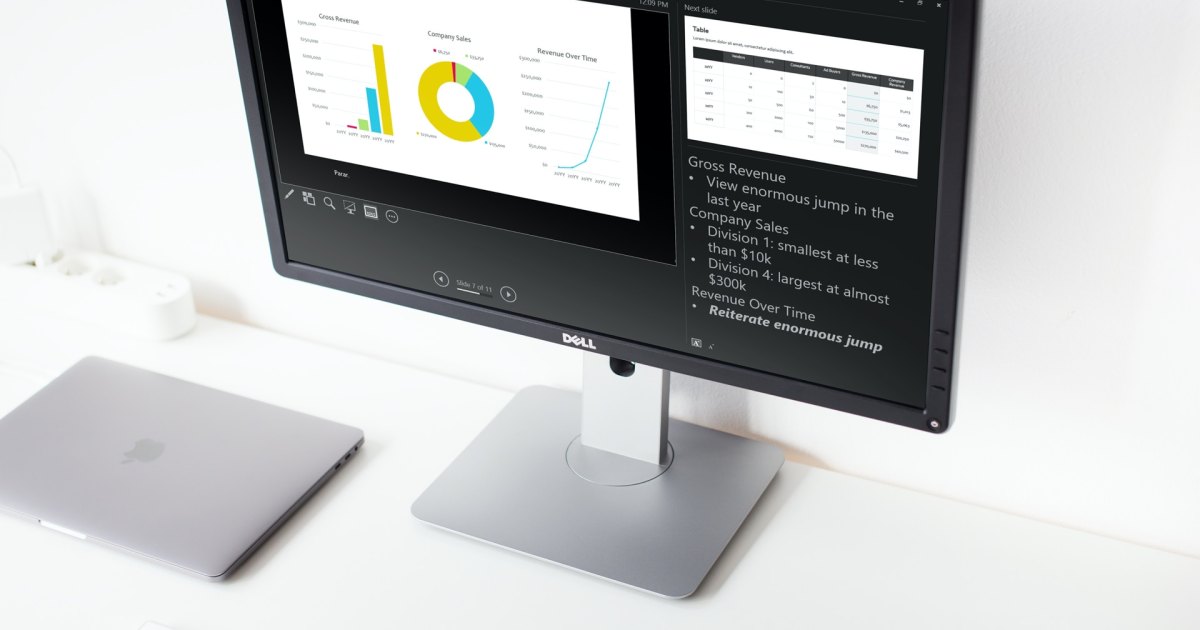
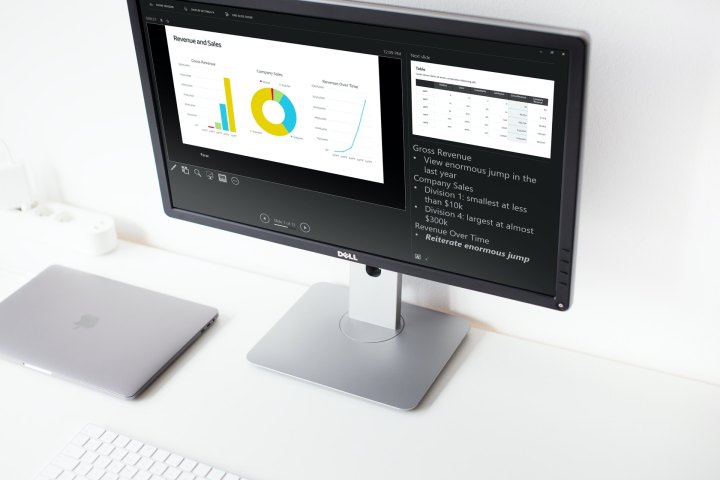 Image used with permission by copyright holder
Image used with permission by copyright holder
When you present a slideshow, it’s likely that you have more to say than what displays on the slides. You may want to expand on the text you’ve included, or if the slide only contains visuals, explain them further.
Did you know that you can add speaker notes to each slide you create when using Microsoft PowerPoint? This allows you to add notes to each slide and then see them in Presenter View when you start the show.
Add speaker notes to a slide in PowerPoint
Open your PowerPoint presentation and select the first slide where you want to add notes.
Step 1: Go to the View tab and choose either Normal or Outline View. This allows you to see your slide along with the note you plan to add.
If you’re wondering how to add a note in PowerPoint without changing the view, the short answer is: You can’t. But if you prefer not to use Normal or Outline View, you can check out the Notes Page view in the same section of the ribbon.
While still technically a “view,” this displays your slide and a text box for your note as a printed page, as shown below.
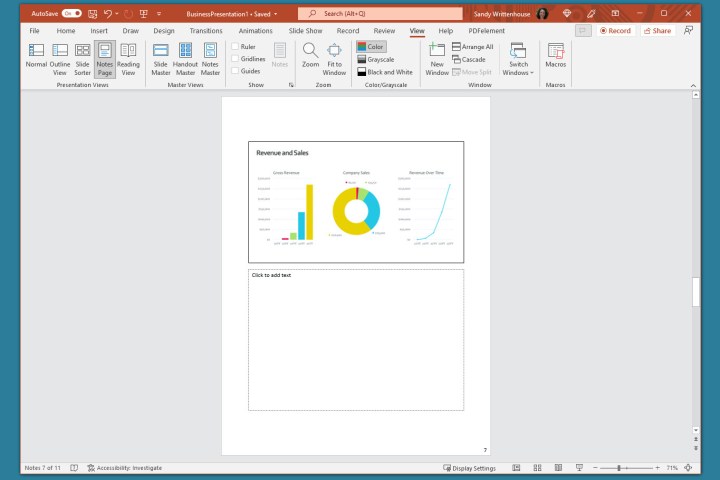 Image used with permission by copyright holder
Image used with permission by copyright holder
Step 2: Display the Notes panel below the slide if it’s not visible using one of the following:
Click the Notes button in the Status Bar at the bottom. Move your cursor to the bottom of the window. When you see the two-sided arrow, drag up until the panel displays. Image used with permission by copyright holder
Image used with permission by copyright holder
Step 3: When the panel is empty, you’ll see “Click to Add Notes” within it. Place your cursor in the box and type your note.
 Image used with permission by copyright holder
Image used with permission by copyright holder
Step 4: You can apply simple formatting to your note using the tools on the Home tab or in the floating toolbar. This is handy if you want to add bullet points or emphasize the font with bold, italics, or an underline.
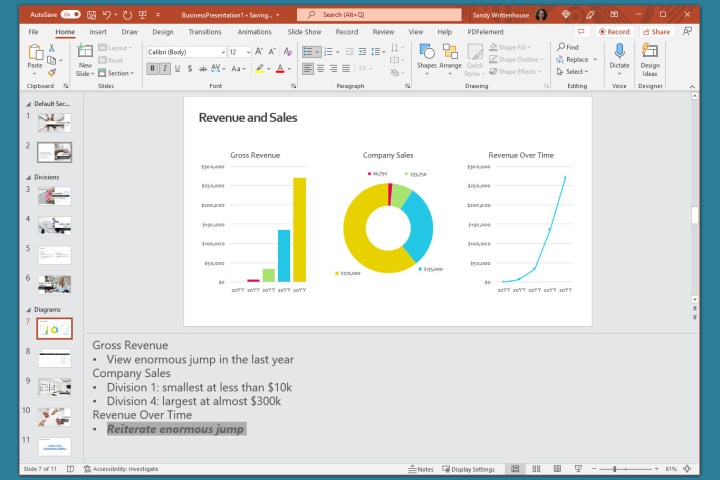 Image used with permission by copyright holder
Image used with permission by copyright holder
Step 5: If you have a lengthy note within the panel, you’ll see a scrollbar appear on the right so that you can move down and see the entire note. You can also drag up on the panel to enlarge it.
Once you're happy with your changes, it's a good idea to print your PowerPoint presentation with the notes, just in case you need a physical copy.
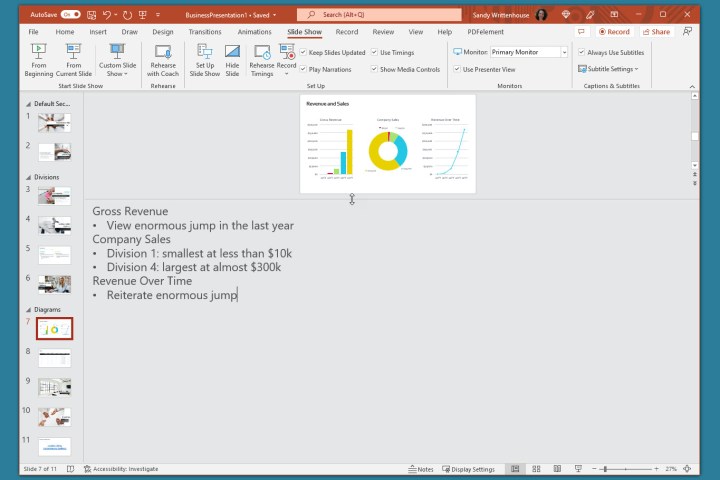 Image used with permission by copyright holder
Image used with permission by copyright holder
Hide notes while editing a slideshow
If you want your slide in full view as you're assembling or editing your slideshow, you can hide the presenter notes. This does not delete them; it merely moves the notes panel out of view.
Do one of the following to hide your notes:
Click the Notes button in the Status Bar at the bottom. Drag the notes panel downward until it no longer displays.View speaker notes during a slideshow
When it’s time to present your slideshow, you can use Presenter View to see your speaker notes. This allows you to view the notes for each slide on your monitor while presenting the slideshow on another. Your audience will not see your notes.
Step 1: Go to the Slide Show tab. On Windows, check the box for Use Presenter View in the Monitors section of the ribbon. On Mac, click the Presenter View button in the Start Slide Show section.
If you’ve already started the slideshow, you can still turn on Presenter View. Click the Three Dots in the Presenter Toolbar and choose Show Presenter View (Windows) or Use Presenter View (Mac).
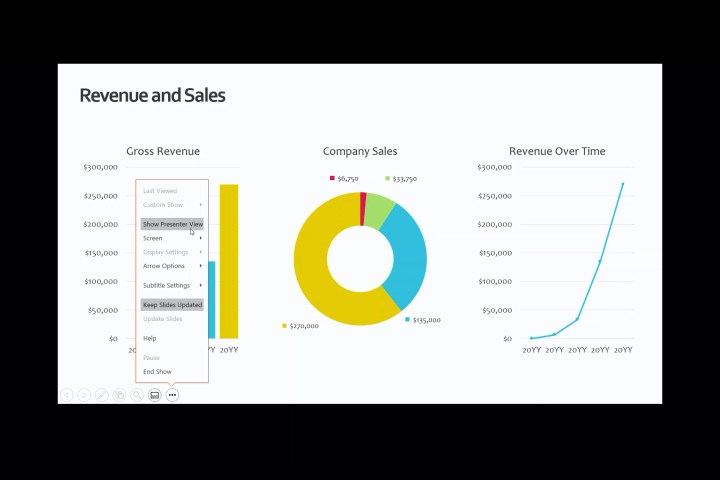 Image used with permission by copyright holder
Image used with permission by copyright holder
Step 2: You’ll then see your notes display on the right side of the screen, with your slide on the left. As you advance each slide, the notes will display accordingly.
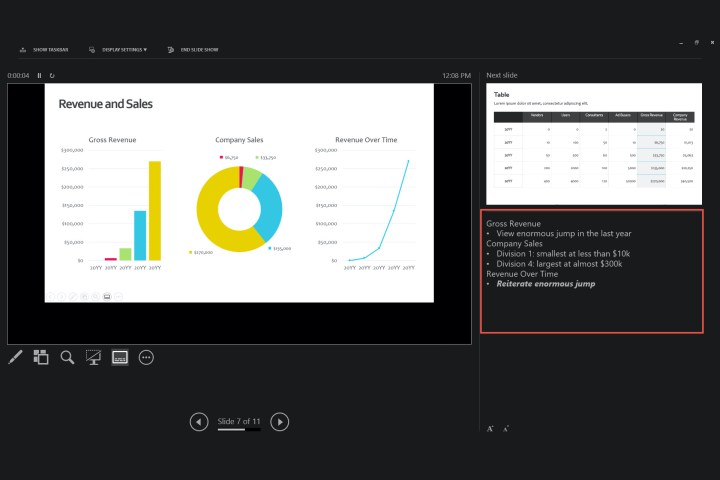 Image used with permission by copyright holder
Image used with permission by copyright holder
Step 3: The text for your note wraps automatically to the next line, and you have a scrollbar to move through those lengthy notes.
To adjust the font size for the notes, use the buttons below the notes panel.
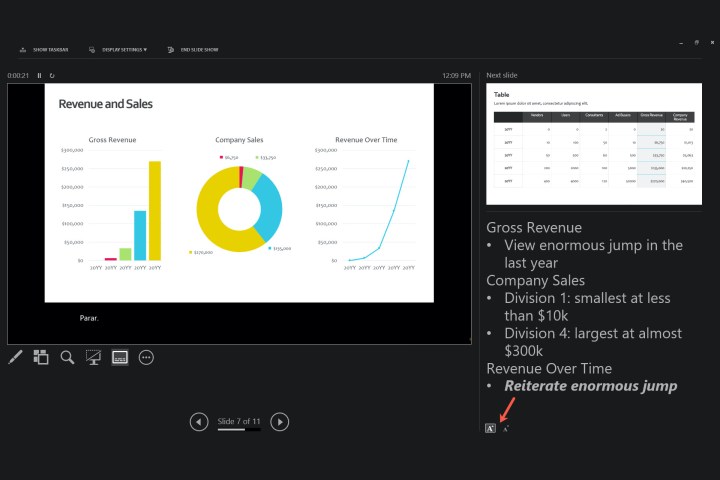 Image used with permission by copyright holder
Image used with permission by copyright holder
Whether you want to add notes to PowerPoint to talk through your slideshow or simply as references while you assemble your slides, be sure to take advantage of this built-in feature.
To improve your presentations, check our guide on the best practices in Microsoft PowerPoint.

 Aliver
Aliver 
































